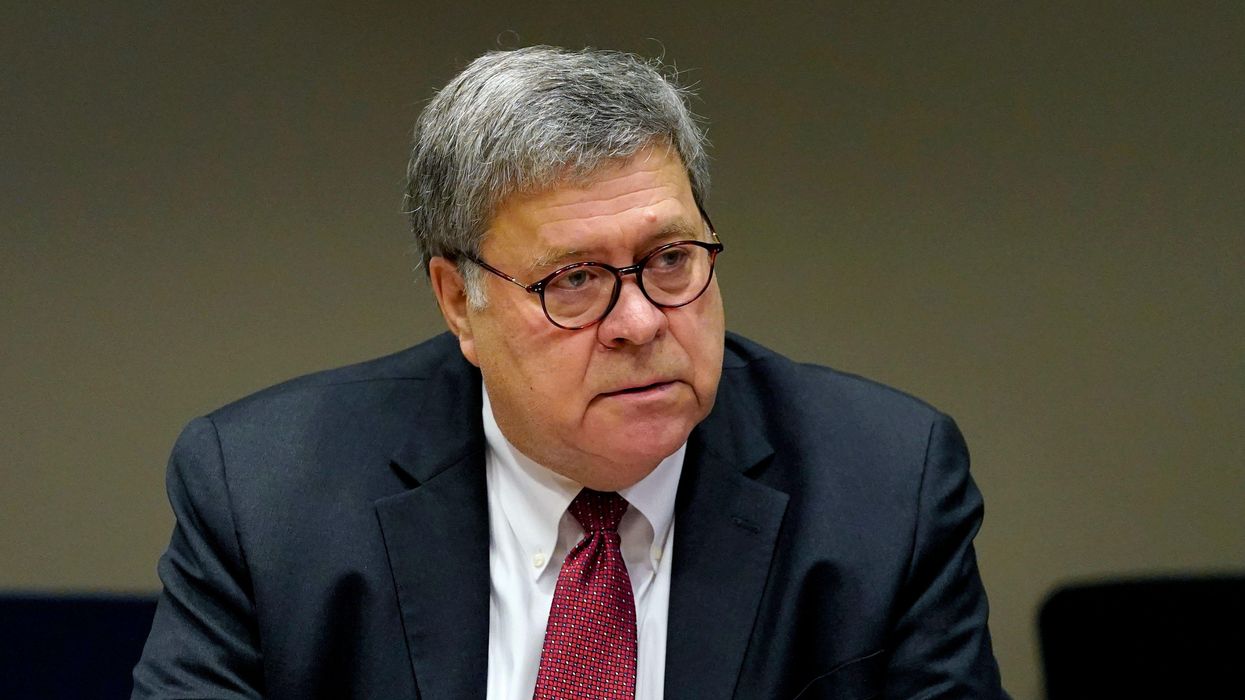All six states where President Trump contested his defeat have finalized results showing he lost, fair and square. Forty lawsuits have gone nowhere for lack of evidence anyone cheated. The administration's top election security official was willing to sacrifice his job for concluding this "election was the most secure in American history."
And now the Cabinet member most influentially loyal to the president the past two years, William Barr, has reported that his Justice Department has not uncovered any evidence of the widespread voter fraud Trump alleges — and has seen nothing that might alter the outcome of an election clearly won by Joe Biden.
Under any normal American democratic circumstances, such a clear conclusion from the attorney general delivered four weeks after Election Day would be the belt encircling the suspenders holding up the elastic waistband pants. Instead, the ousted president declared Wednesday: "We will win!"
Trump's dogged pursuit of his fantastical theories could be ignored altogether from now on. Or else they might get noted only as sideshow evidence of a sore loser who's so intent on attacking every available presidential norm that he's considering announcing a 2024 comeback bid on Biden's inauguration day.
But Trump will remain the most powerful person on the planet for seven more weeks, with the overwhelming majority of fellow Republicans holding power continuing to acquiesce to his out-of-bounds behavior. First among them is Senate Majority Leader Mitch McConnell, who has refused to acknowledge Biden's victory while referring obliquely to legislative negotiations next year with a new administration.
"More and more on my side are at least approaching a public acknowledgement of the reality of the situation," Trey Grayson, a former GOP secretary of state of Kentucky and a co-chairman of the advisory board for the Secure Elections Project, said Wednesday. "But some real damage has been done."
Grayson pointed in part to the threats of violence against officials who have overseen the vote in states Trump lost, which neither the president nor most top Republicans have been willing to condemn. One of those officials, Gabriel Sterling, a Republican and Georgia's voting system implementation manager, excoriated the president and other members of his party on Tuesday for their silence.
"It has to stop," said Sterling, who has worked on two recounts affirming Biden's win in the state. "This is elections. This is the backbone of democracy, and all of you who have not said a damn word are complicit in this. It's too much."
The president did not reply. Instead, after using Twitter to predict his victory one more time Wednesday, Trump tweeted out messages advancing a discredited set of reports about voting irregularities and mistreated GOP poll watchers in Michigan.
The issues they have pointed to are typical in every election: problems with signatures, secrecy envelopes and postal marks on mail-in ballots, as well as the potential for a small number of ballots miscast or lost.
By midafternoon he was also remaining silent about what Barr told the Associated Press on Tuesday: that while federal prosecutors and FBI agents have been working to follow up on a range of specific complaints and information they've received about voting malfeasance, "to date, we have not seen fraud on a scale that could have affected a different outcome in the election."
That comment, which did draw a rebuke from Trump's attorneys, is especially notable given how Barr has been among the president's most ardent and important allies — including by repeatedly making unsubstantiated warnings about the vulnerability of mail-in voting during the coronavirus pandemic.
While Trump has permitted the transition to a Biden administration to begin, he has deviated from all other modern presidents by refusing to concede.
His next formal opportunity to do so comes in a dozen days, when members of the Electoral College across the country convene to cast their ballots. The people have given Biden a solid claim on 306 of those votes, to 232 for Trump.
It's up to Congress to tabulate the results and announce the winner. Such a joint session, set for Jan. 6, is normally a news-free ceremonial affair. But federal law provides the president's GOP allies at the Capitol an opening to seek to disrupt if not derail Biden's final step toward the presidency — by challenging the validity of some electoral votes and making their House and Senate colleagues vote on the matter.



















 A woman prepares to cast her vote on May 4, 2025 in Bucharest, Romania. The first round of voting begins in the re-run of Romania's presidential election after six months since the original ballot was cancelled due to evidence of Russian influence on the outcome. Then far-right candidate Calin Georgescu surged from less than 5% days before the vote to finish first on 23% despite declaring zero campaign spending. He was subsequently banned from standing in the re-rerun, replaced this time round by George Simion who claims to be a natural ally of Donald Trump.Getty Images, Andrei Pungovschi
A woman prepares to cast her vote on May 4, 2025 in Bucharest, Romania. The first round of voting begins in the re-run of Romania's presidential election after six months since the original ballot was cancelled due to evidence of Russian influence on the outcome. Then far-right candidate Calin Georgescu surged from less than 5% days before the vote to finish first on 23% despite declaring zero campaign spending. He was subsequently banned from standing in the re-rerun, replaced this time round by George Simion who claims to be a natural ally of Donald Trump.Getty Images, Andrei Pungovschi
Trump & Hegseth gave Mark Kelly a huge 2028 gift